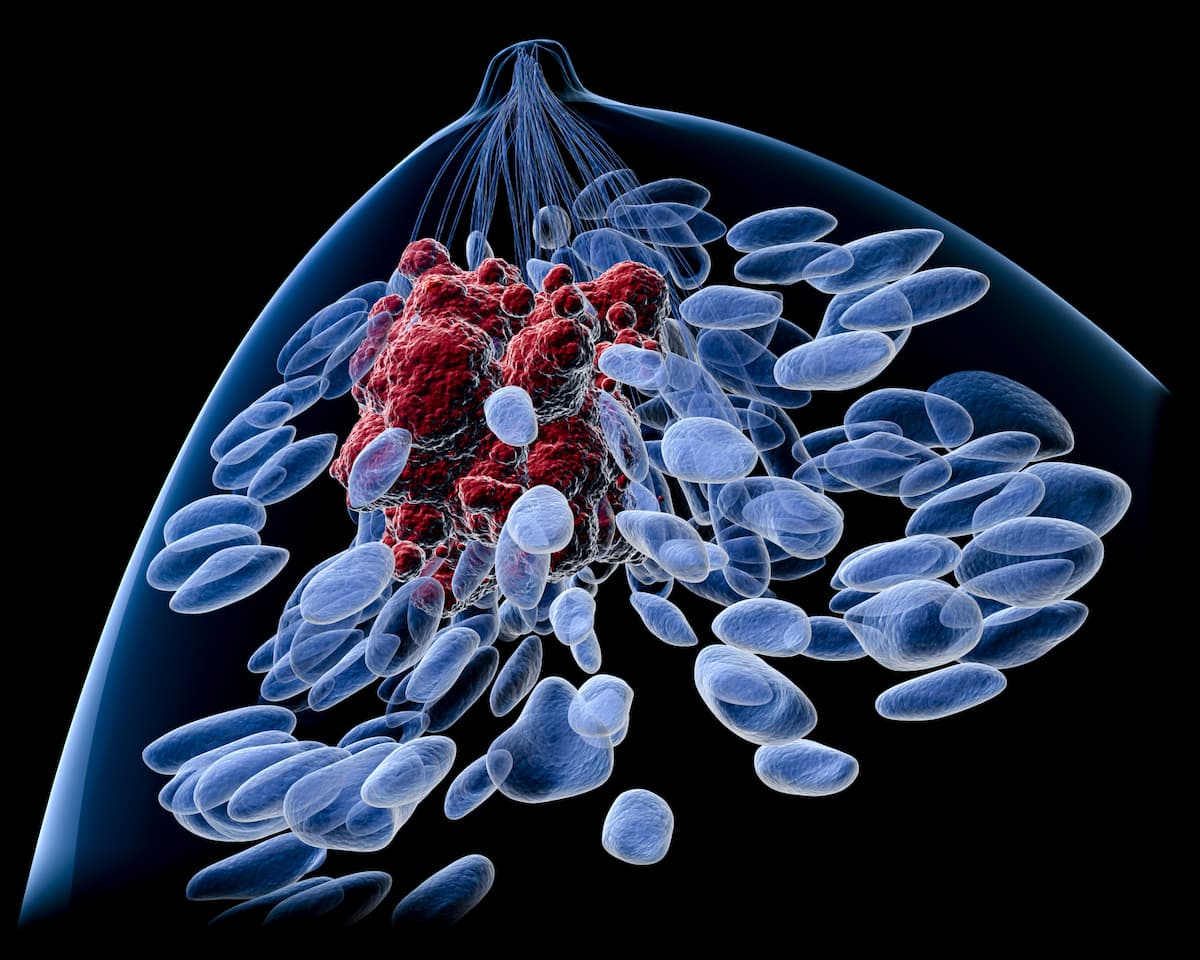Chemo Effects May Outweigh Obesity-Related GI Alterations in Breast Cancer
Identifying biologic mechanisms driving symptoms may be necessary to develop therapies that reduce symptom burden for patients with breast cancer.
Findings from the presentation revealed that among patients with and without obesity receiving chemotherapy for breast cancer, alpha- and beta-diversity analyses did not identify significant GI microbiome differences based on obesity.

The effects of obesity-related gastrointestinal (GI) microbiome alterations and their impact on symptom burden may be outweighed by the effects of chemotherapy in patients with breast cancer, according to findings from a poster presentation at the 50th Annual Oncology Nursing Society Conference.1
Findings from the presentation revealed that among patients with and without obesity receiving chemotherapy for breast cancer, alpha- and beta-diversity analyses did not identify significant GI microbiome differences based on obesity. Furthermore, no significant differences in symptom burden were observed between patients with and without obesity.
Additionally, least absolute shrinkage and selection operator (LASSO) analysis identified 8 bacteria significantly enriched in patients with breast cancer and obesity: Collinsella aerofacien, Prevotella 7, Coprobacillus cateniformis, Ruminococcus torques group, Agathobacter, Frisingicoccus, Roseburia inulinivorans, and Monoglobus pectinilyticus.
Functional analyses of these bacteria established that they were responsible for the severity of neurologic symptoms in patients with breast cancer, as well as pro-inflammatory effects in colorectal cancers. Additionally, the results from this study contrast with findings from a recent meta-analysis published in BMC Microbiology and Infectious Disease, which showed that patients with obesity saw a significant decrease in the richness and diversity of gut bacteria.2
“Identifying biologic mechanisms driving symptoms is necessary for the development of therapies to reduce cancer-related symptom burden,” Catherine Cherwin, PhD, RN, assistant professor of Nursing at the Iowa College of Nursing, wrote with study coinvestigators.1 “While obesity may alter the GI microbiome and influence symptom burden in women with breast cancer, these effects may be outweighed by the effects of chemotherapy on the gut.”
The study included women who were obese or not obese receiving taxane-based chemotherapy for breast cancer. Women were classified as obese if they had BMI of 30 or greater. Patients were recruited while receiving chemotherapy on the first day of a cycle at an outpatient chemotherapy clinic and provided a stool sample and symptom reports at 1 week following treatment.
Symptoms were assessed via the Memorial Symptom Assessment Scale (MSAS), which records the occurrence, frequency (1-4), severity (1-4), and distress of symptoms (0-4) of 32 possible symptoms in the week following chemotherapy. Symptom burden was analyzed as the average ratings for frequency, severity, and distress, as well as for individual symptoms. T-tests or Mann-Whitney U tests were used to compare symptom burden between patients with and without obesity.
The study was initiated to compare symptom reports and GI microbiome composition between obese vs non-obese populations with breast cancer to identify microbial influences for symptom severity. Historically, patients with obesity and breast cancer experienced higher symptom burden, reduced treatment efficacy, and increased mortality vs those who were not obese. Additionally, obesity is associated with changes in the GI microbiome, which has been shown to regulate gut health through the regulation of epithelial integrity, GI mucus degradation, and GI inflammation.
Among patients with breast cancer identified as obese (n = 26) and non-obese (n = 33), the average age was 57.96 years (SD, 11.34) vs 47.48 (SD, 13.03). Additionally, among the respective groups, the mean BMI was 35.44 (SD, 5.71) vs 25.07 (SD, 3.03), 81% vs 97% were White, and 96% vs 94% were non-Hispanic. Additionally, 62% vs 82% had stage I or II breast cancer.
Regarding symptom reports, among the respective groups, the mean symptom occurrence was 13.76 (SD, 7.88) vs 13.12 (SD, 5.21). The mean symptom frequency was 1.93 (SD, 0.36) vs 2.02 (SD, 0.43), and the mean symptom severity was 1.93 (SD, 0.36) vs 1.91 (SD, 0.40). Furthermore, the mean symptom distress was 1.65 (SD, 0.63) vs 1.74 (SD, 0.59) in the obese and non-obese groups, respectively.
References
- Cherwin C, Hoang J, Roberts E, Mangalam A. Gut microbiome and symptom burden in obese and non-obese women receiving chemotherapy for breast cancer. Presented at the 50th Annual Oncology Nursing Society Conference; April 9-13, 2025; Denver, CO. Poster RS67.
- Hu X, Yu C, He Y, et al. Integrative metagenomic analysis reveals distinct gut microbial signatures related to obesity. BMC Microbiol. 2024;24(119). doi:10.1186/s12866-024-03278-5
Targeted Therapy First Strategy Reduces Need for Chemotherapy in Newly Diagnosed LBCL
December 7th 2025Lenalidomide, tafasitamab, rituximab, and acalabrutinib alone may allow 57% of patients with newly diagnosed LBCL to receive less than the standard number of chemotherapy cycles without compromising curative potential.
Targeted Therapy First Strategy Reduces Need for Chemotherapy in Newly Diagnosed LBCL
December 7th 2025Lenalidomide, tafasitamab, rituximab, and acalabrutinib alone may allow 57% of patients with newly diagnosed LBCL to receive less than the standard number of chemotherapy cycles without compromising curative potential.
2 Commerce Drive
Cranbury, NJ 08512
All rights reserved.